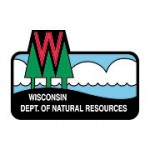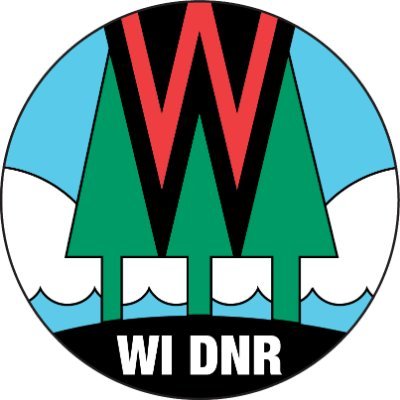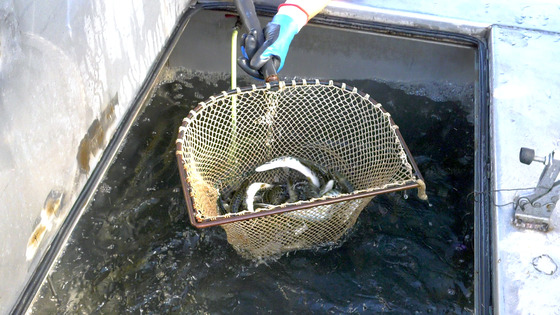Wisconsin DNR Joins Stoughton Utilities For National Imagine A Day Without Water To Celebrate The Removal Of The Last Lead Service Line In The City Of Stoughton
MADISON, Wis. – The Wisconsin Department of Natural Resources (DNR) joined Stoughton Utilities today for Imagine A Day Without Water, a nationwide effort to raise awareness about the value of water, to celebrate the removal of the last lead service line in the City of Stoughton.
“By removing all of their remaining lead service lines, the City of Stoughton is doing the necessary work so that residents are not afraid to drink from their taps,” said DNR Secretary Preston D. Cole. “Lead service lines that are not properly treated and coated, can leach lead into drinking water causing serious health problems, including brain damage among young children. The only completely safe way to eliminate exposure to lead from aging water pipes is is to get the lead out. That is why the DNR is dedicated to working with municipalities across the state to remove these lines to ensure Wisconsinites have safe, clean drinking water.”
Today’s replacement of the final water service line marks the end of Stoughton’s efforts to locate and remove all lead water service lines. In 2021, the utility replaced a total of 698 water service lines.
Gov. Tony Evers declared 2019 the Year of Clean Drinking Water, and the work continues. The DNR has a long history of water protection and remains committed to ensuring safe water in Wisconsin. The department’s dedication to safe water for all includes a continued focus on lead services lines, PFAS and nitrates.
“We are doing all that we can to make sure the people of Wisconsin do not have to have any days without safe, clean drinking water,” Cole said.
Lead Service Lines
There are over 176,000 lead service lines that need replacing to provide safe water for all across Wisconsin. To help combat the issue, the DNR is providing $63.8 million to assist communities like Stoughton with lead service line replacement.
The assistance was made possible by the U.S. Environmental Protection Agency (EPA) allowing states in 2020 to provide grants to replace lead service lines on private property for two years using their Clean Water Fund and Safe Drinking Water Fund programs. So far, the DNR has provided grants to 65 communities totaling $40 million, with the remaining $24 million in grants to be distributed over the next year.
Although originally used in many consumer products, lead is now known to be harmful to human health if ingested or inhaled. When people come in contact with lead, it may enter their bodies and accumulate over time, resulting in damage to the brain, nervous system, red blood cells and kidneys. Its presence in the body can lead to toxic effects, regardless of age, gender or exposure pathway. Removing lead service lines is one way to minimize the potential for lead to get into your drinking water. Learn more about drinking water and lead on the DNR’s website here.
PFAS
PFAS (per- and poly-fluoroalkyl substances) are a group of human-made chemicals used for decades in numerous products, including non-stick cookware, grease resistant food wrappers, firefighting foam and stain-resistant sprays. Although scientists are still learning about the health effects from the estimated 9,000 types of PFAS chemicals, studies indicate that some PFAS can cause adverse reproductive and developmental cancer, liver and kidney and immunological effects.
The DNR has undertaken several measures to mitigate PFAS pollution in Wisconsin, including establishing the Wisconsin PFAS Action Council in 2019, spearheading the statewide PFAS Action Plan and issuing multiple fish consumption advisories due to PFAS. The DNR also helped provide clean drinking water to the private well owners in communities such as French Island in La Crosse County and the town of Peshtigo.
The DNR is also advancing rules to establish safe water standards for PFAS, including proposing enforcement standards for groundwater, surface water and drinking water and supporting proposed PFAS legislation, such as the CLEAR Act to expand monitoring, well testing, funding for communities impacted by PFAS to help provide safe drinking water and clean up funds, and expanding staff to assist communities and businesses proactively addressing these forever chemicals. The CLEAR Act is still awaiting action by the state legislature.
Nitrates
Nitrate is Wisconsin’s most widespread groundwater contaminant. Studies show that nitrate is increasing in severity and extent in Wisconsin. While the majority of Wisconsin households rely on public water systems, one in four Wisconsinites get their water from private wells. At least 10% of private wells in Wisconsin, and 300 public water systems, have levels of nitrate that exceed the health standard for nitrates.
It is widely acknowledged that 90% of nitrate leaches from agricultural sources such as manure and fertilizer. Nitrate poses an acute risk to infants and women who are pregnant, a possible risk to the developing fetus during very early stages of pregnancy and a chronic risk of serious disease in adults.
Since private wells are largely unregulated in our country and not tested on a regular basis like public water supplies, owners of wells are generally left on their own to test their water and correct any concerns. Since 2019, the department has been working on targeted performance standards for agricultural practices in areas of Wisconsin that are most susceptible to nitrate contamination and where rural families are suffering the most.
Safe Water For All Campaign
Gov. Evers declared 2019 the Year of Clean Drinking Water to address the fact Wisconsinites do not have access to safe, clean drinking water. Today, the work continues.
To help keep the public informed on the state of water in Wisconsin, the DNR launched the Safe Water For All Campaign in July 2021. This effort included a series of online webinars available On-Demand here.
NOTE: This press release was submitted to Urban Milwaukee and was not written by an Urban Milwaukee writer. While it is believed to be reliable, Urban Milwaukee does not guarantee its accuracy or completeness.
Mentioned in This Press Release
Recent Press Releases by Wisconsin Department of Natural Resources
DNR Seeking Public Comment On Master Plan Variance To Add Trailhead Shelter, Storage Facilities To Peninsula State Park
Jul 17th, 2025 by Wisconsin Department of Natural ResourcesPublic Comment Period Open Through Aug. 7
DNR Publishes 2024 Fish Stocking Summary
Jul 16th, 2025 by Wisconsin Department of Natural ResourcesOver 5 Million Fish Stocked Into Wisconsin Waters























